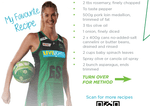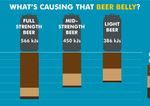Junk food in sport – it’s just not cricket
by Jawaahir Alim, Obesity Policy Project Officer, Cancer Council WA
- February 9, 2023
- Leave a comment
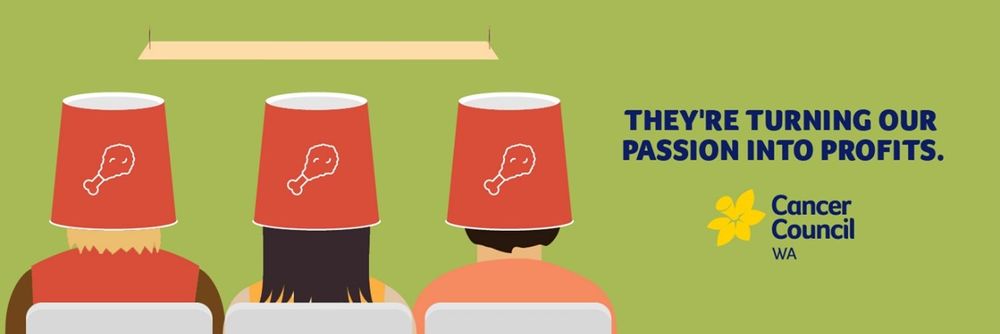
Are there cricket fans in your family? If so, you most likely spent the summer months coming together to support your favourite team in the Big Bash League (BBL).
Unfortunately, watching cricket in Australia means being bombarded with junk food advertising. You can’t ignore KFC branding when watching the BBL, with branding on banners around the grounds, players’ uniforms, the pitch, wickets and TV graphics.
Junk food sponsorship in sports is widespread. Junk food companies spend big bucks on sponsoring sport, especially professional competitions and teams with large fan followings and TV audiences. This in turn provides junk food companies with huge brand exposure and increases their brand popularity.
This type of sponsorship sends conflicting messaging to children who are watching their favourite sports teams and sporting heroes endorse junk food brands.
It makes it difficult to encourage our children to eat healthily. Kids are impressionable, idolise sport stars and are developing habits they will likely carry into adulthood.
Overwhelming KFC brand advertising
Cancer Council WA put the 2021-22 Cricket Australia BBL final under the microscope to find out how much of the broadcast featured KFC branding.
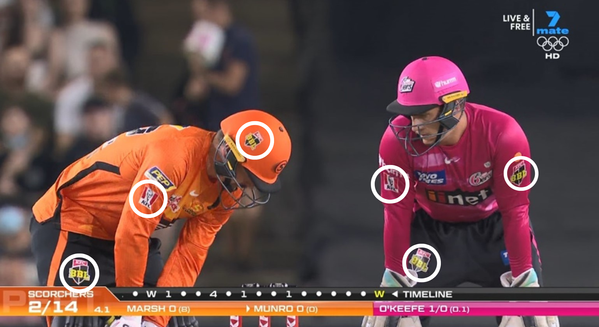
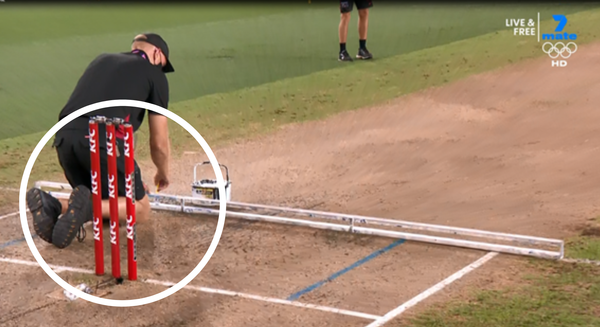
Our analysis found that 40 per cent of the broadcast displayed KFC brand advertising, with over one-third of this from multiple types of advertising on screen at one time.
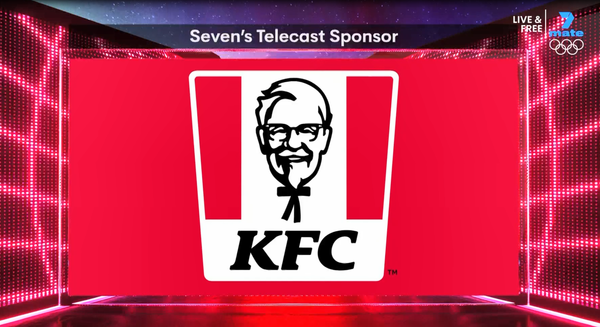
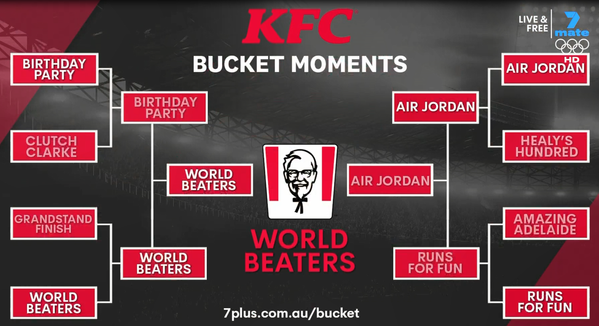
KFC adverts and branding were visible 13 times more than healthy brand marketing and made up five per cent of the commercial break advertisements. The KFC brand was not only integrated into every part of the TV coverage, KFC marketing extended out to official channels on the BBL social media and included influencers promoting KFC in relation to cricket.
The Western Australian community says no more!
Cancer Council WA surveyed over 900 Western Australians during the 2021-22 cricket season to ask their thoughts on junk food in sports. The results clearly show that the WA community are aware of junk food sponsors in sport and want sporting codes and venues to do better.
- Most (87 per cent) parents included in the survey noticed junk food and drink brands marketed through sport.
- The majority of Western Australians (81 per cent) surveyed agreed that “sport is no place for marketing junk food and drink to children.”
Respondents shared their concerns that junk food in sport was inescapable and contradicted the potential for sport to positively influence our health:
Some shared how junk food in sport was undermining their ability to role-model and provide healthy food to their families.
- Three quarters of parents reported that junk food and drink marketing made it harder to feed their children a healthy diet.
- Parents were also concerned about the potential of these sponsorships to encourage pester power, with 77 per cent of parents agreeing that “the marketing of junk food and drink in sport makes it more likely that children will pester their parents for junk food and drink products”.
Advertising regulations – where are they?
The regulations that are supposed to protect children from junk food advertising in Australia are not effective as they are led by the junk food and advertising industries and are not mandatory.
These industries have themselves made the definition of what foods and drinks they can advertise to children, at what age children can be targeted and what media children are watching. This has led to ineffective voluntary codes that allow junk food advertising to be the wallpaper in children’s lives and our sports to be blanketed in junk food brands.
Governments at all levels must all act within their remit to protect children from junk food advertising exposure in the places they live, learn and play.
In Western Australia, Cancer Council WA along with other health organisations are calling on the WA Government to implement a policy to remove junk food advertising on state assets so we can visit our sporting stadiums, community venues and travel on buses and trains free from junk food advertising.
How can you help as a parent or community member?
You can write to your federal or state MP and ask for urgent action to restrict the exposure of children (up to 18 years) to the marketing of junk food. This action should include measures to ensure broadcasters and sporting codes and teams are obliged to consider community health when accepting sponsorship.
You can also write to your local government requesting the development of a policy that prohibits the advertising of junk food, including alcohol, on local government assets or events.
This includes:
- No advertising of junk food, alcohol or related brands on bus stops, public bins and community sporting grounds.
- No junk food, alcohol or related brands sponsoring community events and workshops.
 Photo by Alexander Dummer on Unsplash
Photo by Alexander Dummer on UnsplashYou can read the full report ‘Junk food in sport: it’s just not cricket’ here.
This work is generously funded by Healthway.

